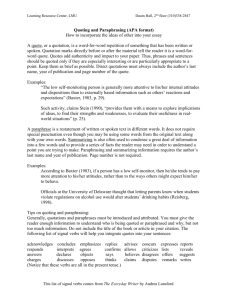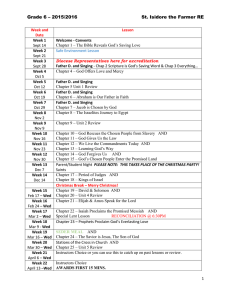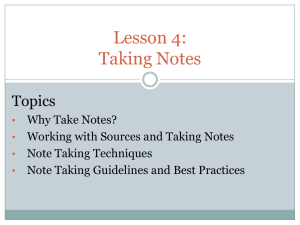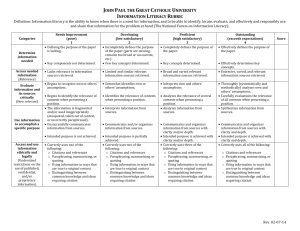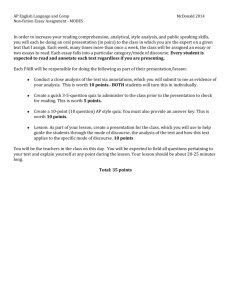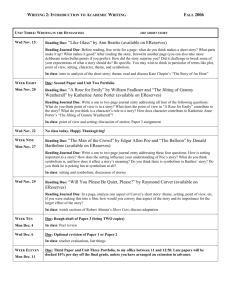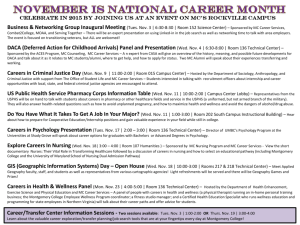Choose an academic topic that interests you
advertisement
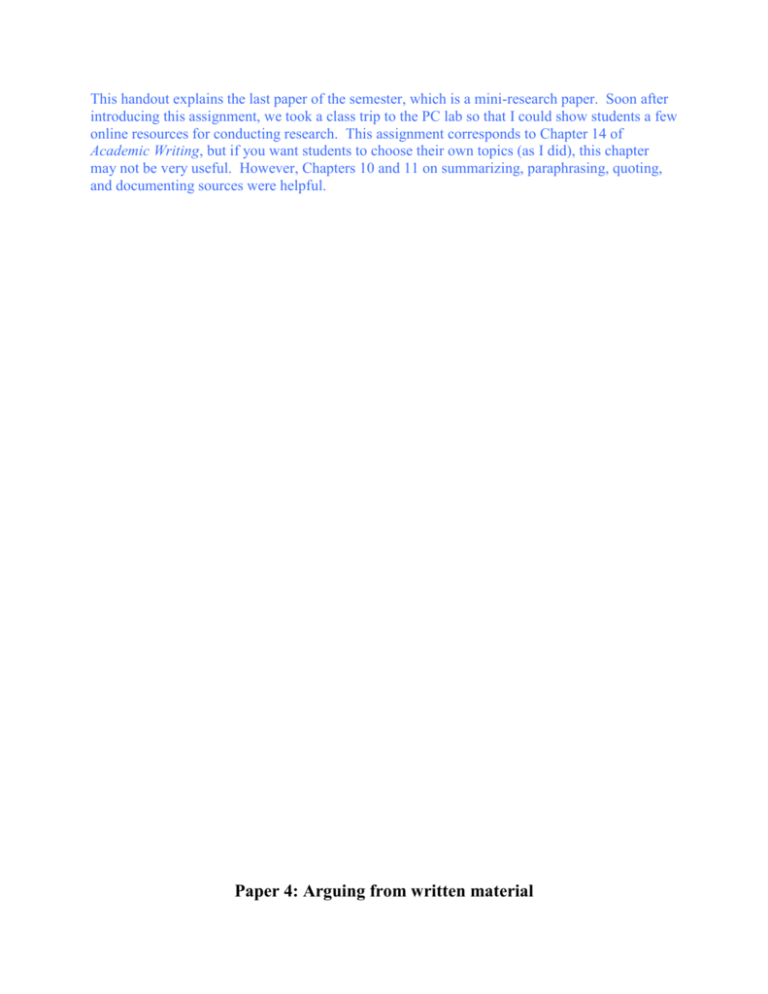
This handout explains the last paper of the semester, which is a mini-research paper. Soon after introducing this assignment, we took a class trip to the PC lab so that I could show students a few online resources for conducting research. This assignment corresponds to Chapter 14 of Academic Writing, but if you want students to choose their own topics (as I did), this chapter may not be very useful. However, Chapters 10 and 11 on summarizing, paraphrasing, quoting, and documenting sources were helpful. Paper 4: Arguing from written material (Mini-research paper) Purpose: The purpose of this assignment is for you to practice methods of researching and writing about an academic topic. Paper Topic: You may choose your own topic for this paper. Follow the guidelines below for choosing a topic. 1. Choose an academic topic that interests you. Since you will be doing a lot of reading and writing about this topic, make sure that it interests you. This could be a topic that you’re learning about in another class or one that relates to your major. If your topic is important to you, then you will likely feel more motivated to read about it, talk about it, and write about it. 2. Choose a topic that is familiar to you. You might select a topic that you are familiar with from your other classes, or a topic that you have read about before. If you already have some knowledge about your topic, then it will probably be easier to explain it and give support for your point of view. 3. Choose a topic that you would like to learn more about. Make sure your topic is something that you would like to know more about; if you already know all about your topic, then you may become bored with reading and writing about it. 4. Choose a topic that is not too broad or too narrow. Make sure your topic can be addressed in a 4-6 page paper. Selecting a very broad topic or a very narrow topic can make your paper more difficult to write. For example, “pollution” as a topic for this paper would be too broad, but you could narrow it down by writing about a specific kind of pollution, or pollution problems in a specific place. Researching Your Topic: Find 3 reliable sources. Once you have selected a good topic for your paper, the next step is to find research sources. These sources might be: academic books such as textbooks, reference books, or collections of essays about your topic. newspaper or scholarly journal articles about your topic. web sites about your topic. other kinds of sources that help explain your topic. If possible, it’s useful to have a variety of different kinds of sources written by different authors. Make sure that your sources are reliable; that is, that the information they contain is useful and trustworthy. Once you have found your sources, read them and take notes about important or interesting facts or ideas that you could write about in your paper. Writing Your Paper: 1. Introduce your topic and explain why you chose to write about it. 2. Describe your own perspective on your topic (what you think about your topic and why your topic is important). 3. Use your sources to support your perspective on your topic. Your sources can help you give background information, facts, examples, and details about your topic. 4. Make sure that you avoid plagiarism by citing your sources and by quoting, paraphrasing, and summarizing appropriately. Paper Timeline: Wed., Nov. 17: Wed., Nov. 24: Mon., Nov. 29 – Wed., Dec. 1: Mon., Dec. 6: Draft 1 due (bring two copies to class) Draft 2 due (bring two copies to class) Student-instructor conferences Final paper due (bring all 3 drafts to class) Your final paper should be 4-6 pages typed, double-spaced.
